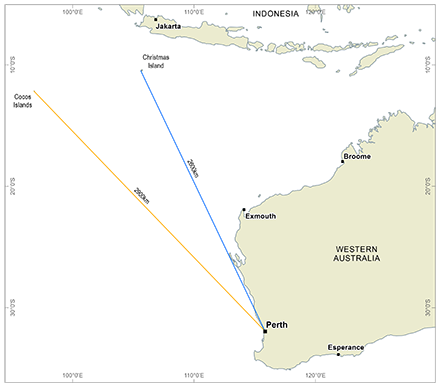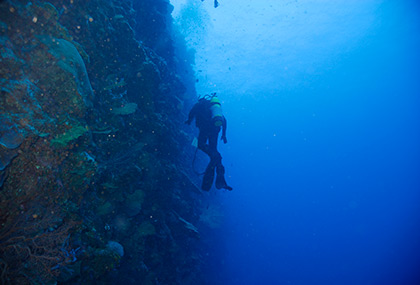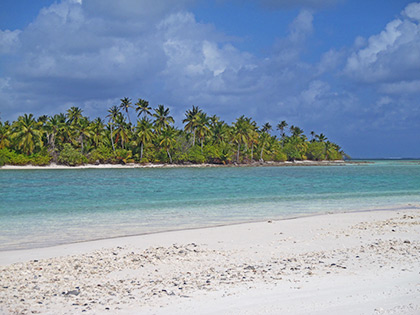Christmas Island and Cocos (Keeling) Islands are external territories of Australia, and are collectively referred to as the Indian Ocean Territories (IOTs).

As of the 1 July 2021 the Department of Primary Industries and Regional Development is no longer providing Fisheries Services at the IOTs this responsibility now sits with the Commonwealth Department of Infrastructure, Transport, Regional Development and Communications. The Commonwealth Minister for Regional Development and Territories holds responsibility for the territorial seas (out to 12 nautical miles) of the two islands under the Fish Resources Management Act 1994 (WA)(CKI) (CI).

The ‘drop off’ at Christmas Island is very close to shore, quickly giving way to water up to 3,000 metres deep.
To help keep fish stocks and aquatic resources sustainable a set of recreational fishing rules have been developed specifically for the IOTs, taking into account the latest science and community input. The proposed recreational fishing rules are available on Commonwealth Department of Infrastructure, Transport, Regional Development and Communications website:
Whilst the proposed recreational fishing rules are not currently finalised into legislation people are asked to abide by them to help ensure that fish and aquatic resources are sustainable.
It is important to note that upon return from IOTs to Western Australia (WA) possession limits apply on the amount of seafood allowed into WA. The possession limits means that a maximum of 20 kilograms of fish fillets per person applies upon entry to WA, for more information check out the  Statewide Recreational Fishing Guide. You are not permitted to sell or use recreationally caught seafood for any gain or reward (including barter or exchange for other goods or services). Anyone with information on any suspected illegal imports or sale of seafood, should call FishWatch on 1800 815 507. Information can be provided confidentially.
Statewide Recreational Fishing Guide. You are not permitted to sell or use recreationally caught seafood for any gain or reward (including barter or exchange for other goods or services). Anyone with information on any suspected illegal imports or sale of seafood, should call FishWatch on 1800 815 507. Information can be provided confidentially.
From 1 July 2021, if you would like further information please contact the Commonwealth Department of Infrastructure, Transport, Regional Development and Communications by emailing IndianOceanTerritories@infrastructure.gov.au or by calling 1800 075 001.
 Pulu Maraya is one of the 27 islands of the Cocos (Keeling) Islands atoll group
Pulu Maraya is one of the 27 islands of the Cocos (Keeling) Islands atoll group